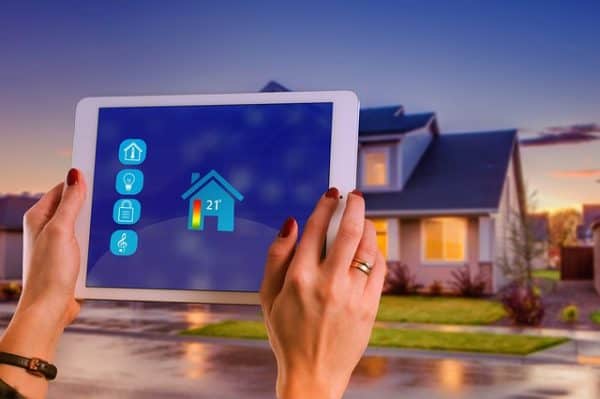Smart technology defines every aspect of the modern era. We are essentially lost without our various innovative devices. Beyond our smartphones and tablets, we are also growing increasingly dependent on more subtle smart tech. For example, smart air purifiers clean our air, smart fridges keep our food at the perfect temperature and let us know when we are running low on something. From the best wireless home security system that money can buy to biometric locks, let’s explore traditional security measures and then compare them to what smart tech has to offer.

Traditional Alarm Systems (And Security)
It is difficult to define what constitutes ‘traditional’ when it comes to home security. There is less of a defined line and more of a gradient of progress separating ‘smart’ from ‘traditional.’ For this article, we define traditional systems that do not interact with your other smart devices or do not offer seamless online connectivity and functionality.
With those parameters in place, it is easy to see how many of the most common security systems are not smart home security systems. A keypad and processing box connected to a small network of wired infrared motion sensors is the most typical of these setups. Also standard are CCTV networks. These are a closed circuit set of cameras that you place around your property. The footage is then displayed on a dedicated monitor somewhere in your home. In addition, the footage is recorded on a central media box. Still, although many of these offer proper storage through digital harddisks, they are not networked to an online system that can store data safely on the cloud.
In their primary function, traditional security systems are pretty much a one-trick pony. First, they serve to alert you to potential trespassers (or your cat. Or a pigeon). Then, suppose they are linked to the security service of a security company. In that case, a triggered alarm will notify the company, and they will respond.
Smart Home Security
When we say that a security company will respond to an alarm triggered by a traditional security system, we are intentionally vague; an old-school alarm system can’t tell any emergency responders much about the problem. In contrast, newer security systems can offer numerous information on what is going on and why an alarm has been triggered. In addition, you can set up innovative security systems in a plethora of ways.
Smart home security systems are interconnected. It may be challenging to think of situations where this is beneficial. For example, think of a scenario where your house is being robbed. A traditional security system will call for emergency response. However, the response team will have no way to know what is happening if they can’t reach you telephonically and explain it.
Therefore, the emergency responders will arrive on the scene and first have to ascertain the situation. Then they need to ensure the security of your home, after which they must either blindly pursue the burglars or give them ample time to get away. At the same time, emergency services sift through footage on your home CCTV setup.
This is just one of the countless potential scenarios that illustrate the efficiency of the newest systems. The best part of these systems is that innovative, online systems are modular and can be set up to work in unison with various other systems. This includes technologies like biometric door locks and your fire alarm systems.
 Gearfuse Technology, Science, Culture & More
Gearfuse Technology, Science, Culture & More


